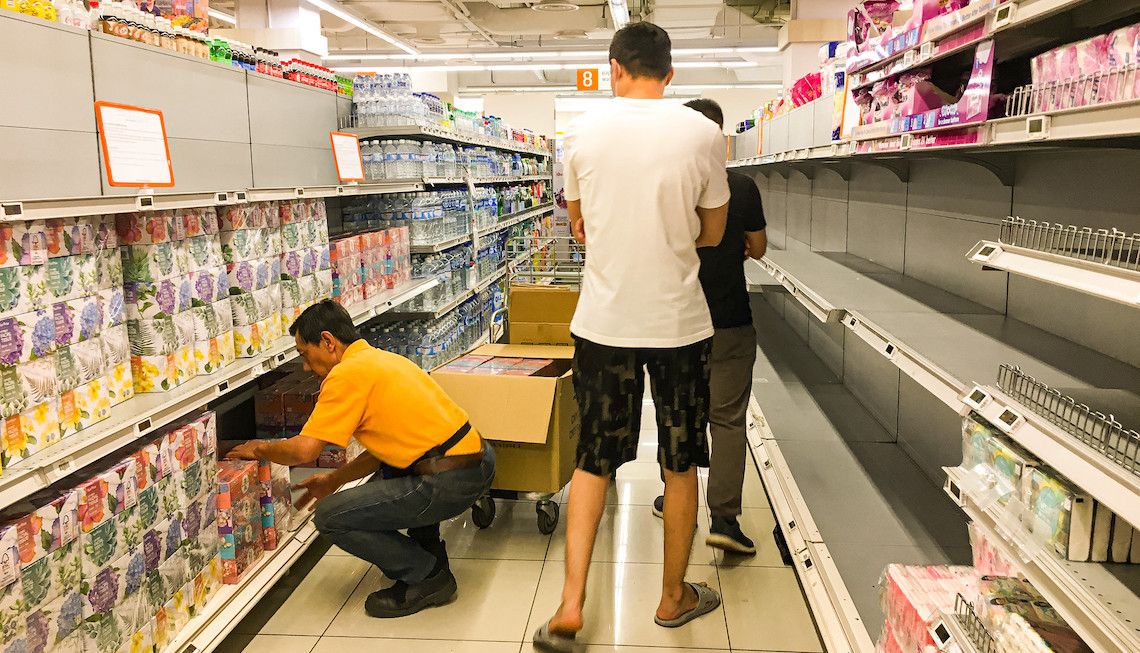How Singapore managed essential supplies as Covid-19 hit
By Tian Jiao Lim
The Ministry of Trade and Industry’s Digitalisation Director, Kuhan Harichandra, shares more.

Image: cattan2011 — CC BY 2.0
Against this backdrop, Singapore’s Ministry of Trade and Industry (MTI) found its role shifting. The Ministry, which previously focused mainly on policy formulation and implementation, had to take on a more operational role to make sure that essential supplies like masks and food continued moving into Singapore.
As MTI tackled reusable mask distribution, ensured smooth business travel into Singapore, and responded to Covid-19’s impacts on global trade, what are some new strategies they employed? GovInsider speaks to Kuhan Harichandra, Director of the Digitalisation Office at MTI, to find out more.
Apps to battle Covid-19
The coronavirus pandemic forced MTI to “build new muscles” in integrating technology into operation plans, Kuhan says. Amidst disruptions in supplies of essentials like food and medical items during the early stages of the pandemic, the ministry “took on several operational processes” to ensure there was no shortage.
At the start of Singapore’s circuit-breaker period in April, MTI together with People's Association deployed a mobile app to track the distribution of free reusable masks to every resident. The app, developed in collaboration with Singapore’s Government Technology Agency (GovTech), allowed volunteers to track whether each resident had already collected their masks, Kuhan says. This ensured that no one took more masks — then a “scarce commodity” — than they were allocated.

As Singapore reopens its borders in a calibrated and progressive manner for essential business travels, MTI has also worked with GovTech and the Immigration and Checkpoint Authority to create ‘SafeTravel’, a platform that facilitiates business travellers' applications to enter Singapore from six provinces in China.
“The use of digital tools enabled us to coordinate the [fast-lane travel operations] with our partner agencies seamlessly,” Kuhan says.
These close collaborations with partner agencies “ensured that we were able to roll out the required tech solutions at short notice”, remarks Kuhan. They also “highlight how digitalisation enhances MTI’s agility to take on new operational tasks in challenging circumstances”.
Data is king
Data is at the core of MTI’s decision-making process. The ministry combines both public and private sector data into a nerve centre-like platform, which “enhances our surveillance capabilities and sharpens our strategy formulation,” Kuhan says.
Officers use natural language processing algorithms to “tease out sentiments from text on publications, like newspapers”, and use machine learning to predict start-up success, for example. “As more of our officers start to apply these new skills, the opportunities to infuse it directly in our daily work processes will increase correspondingly,” Kuhan says.
MTI partners with private sector companies for data that gives a “timelier sensing on the pulse of the economy”. These datasets range from daily credit card spending to online food orders and electricity consumption information. This reduces the “significant time lag” that could be caused with surveys, the data collection method that MTI previously relied on.
MTI is augmenting this with supply chain data. The ministry works with a private sector partner to look into bill of lading data which is a detailed receipt of cargo ships coming from other countries. “We can then use this information to find avenues for optimisation, to ensure the resiliency of our supply chain,” Kuhan says. This is an especially pertinent concern given Covid-19’s unpredictable impacts on global trade.
Even as the ministry steps up its data collection efforts, data security remains a priority. “More importantly, we have formulated a comprehensive data governance process to ensure responsible access and use of these data, to maintain trust with our private sector partners,” Kuhan affirms.
MTI has replaced manual steps to speed up data gathering from within the government, aiming to fulfil inter-agency data requests in “less than 10 days”. It is also equipping officers with the tools to fully harness the potential of these expanded datasets. Officers have access to data visualisation software to “make sense of and tell a story from big data”. The even more digitally proficient use more advanced programming tools for deeper analysis.
International partnerships
As an increasing share of global trade takes place digitally, MTI’s initiatives extend beyond Singapore’s borders. Singapore has formalised digital trade rules and collaborations with different countries through digital economy agreements.
These progressive partnerships usher in new opportunities to “build linkages with other countries,” Kuhan says. “Singapore hopes to... support our businesses, especially SMEs, engaging in digital trade and electronic commerce.” For example, the Singapore-Australia Digital Economy Agreement allows businesses, even those in the financial sector, to transfer data across borders instead of keeping it in data storage centres within the country, and moves the countries towards cross-compatible e-payment frameworks.
In the age of Covid-19, trade flows are more unpredictable than ever. But through embracing new tech, harnessing the power of data, and welcoming multilateral cooperation, Singapore is forging ahead towards a more efficient, informed and connected future, no matter the external climate.